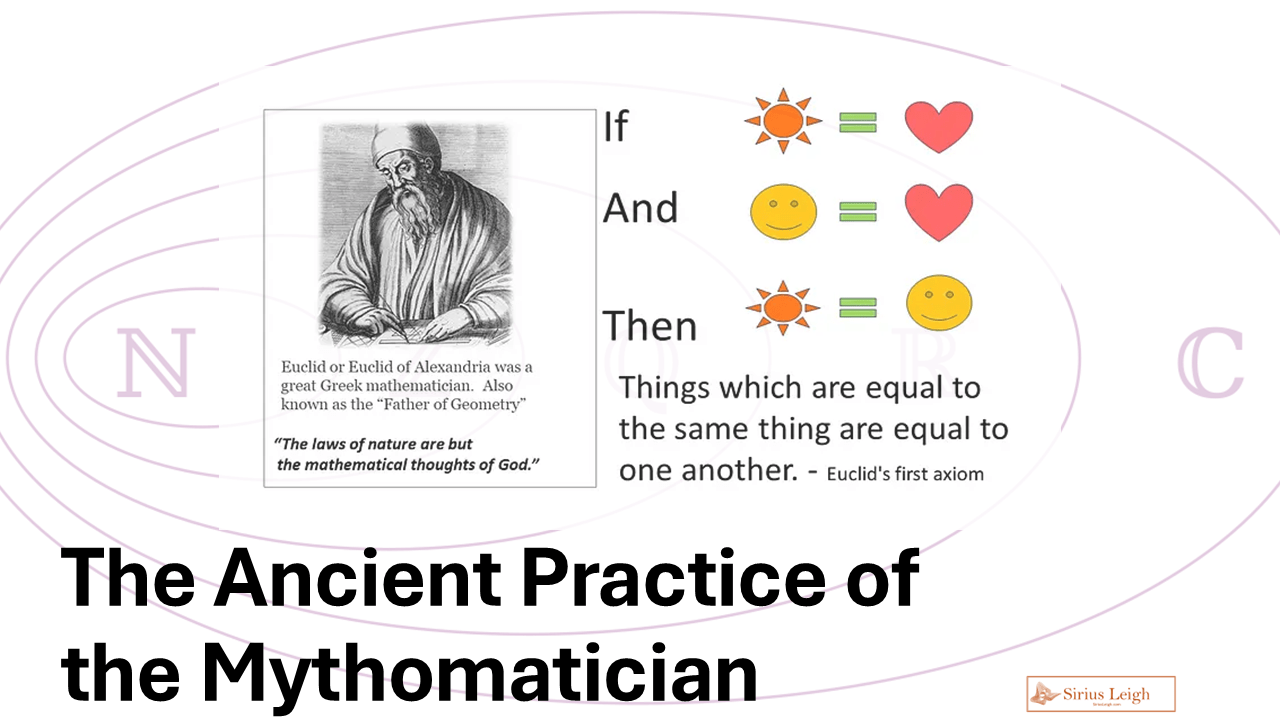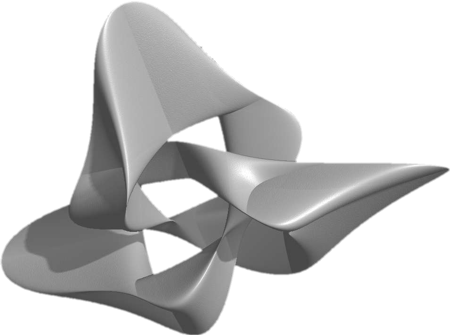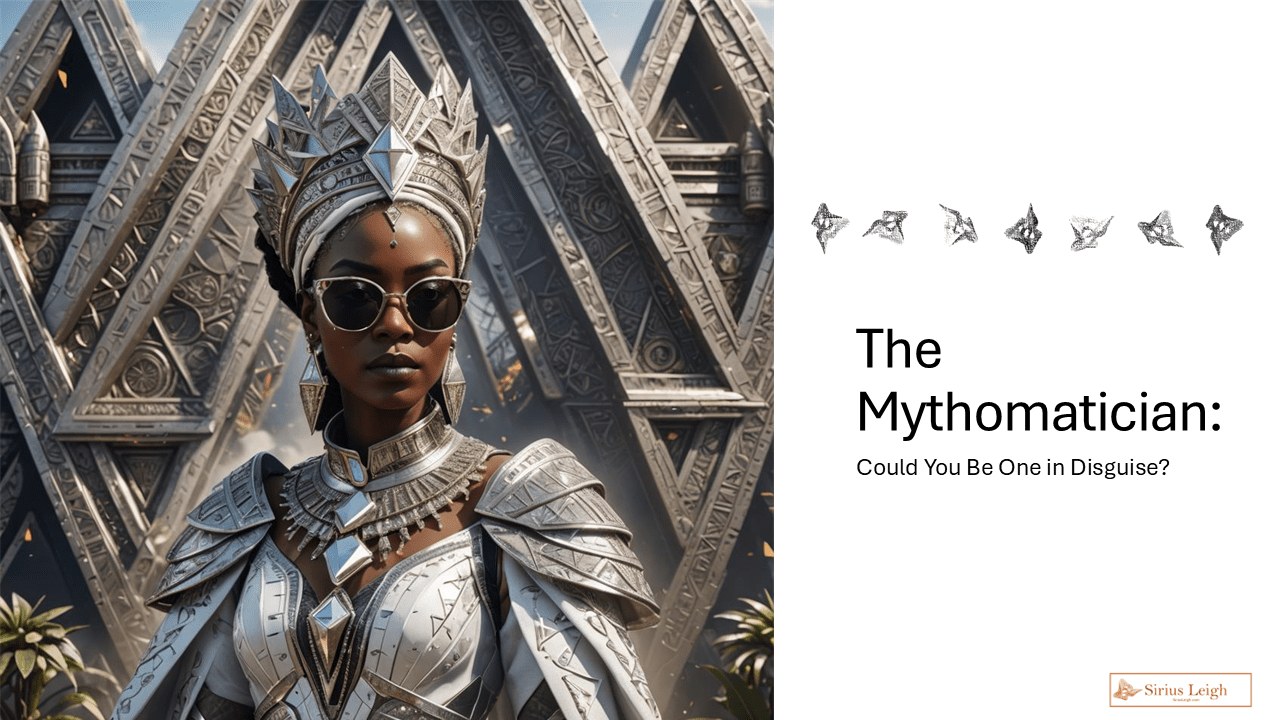
The Ancient Practice of the Mythomatician
A New Name for an Old Path
Though the term Mythomatician is new, the practice itself is timeless. For as long as humans have sought to understand the heavens and themselves, there have been individuals who read the world as both number and symbol, story and structure. These were the priest-mathematicians of ancient Egypt, the geomancers of China, the philosophers of Greece, the alchemists of the Islamic Golden Age, and the mystics of the early Christian and Jewish traditions. They may not have used the word Mythomatician, but they lived its meaning.
Mathematics as Sacred Language
Ancient cultures used geometry and arithmetic to align temples with celestial patterns, believing that numbers encoded divine truths. The Mythomatician continues this lineage.
Today, the word gives name to a lineage that has always existed beneath the surface of dominant culture. A Mythomatician is not just a numerologist, though they understand the power of number. They are not only mathematicians, though they think structurally. And they are not merely mystics, though they listen for the voice of the unseen. Rather, they are weavers. They fuse the precision of mathematics with the narrative logic of myth to construct a worldview that honors both mystery and method.
Numerology, in contrast, often assigns fixed meanings to numbers: 3 as creativity, 4 as stability, and so on. While this symbolic shorthand can be useful for reflection, the Mythomatician engages numbers dynamically, seeing them in context, recursion, and evolution. To them, numbers are not definitions but doorways. They study the living relationships between numerals, geometric forms, and mythic archetypes. They understand that 0 and 1 are not just digits but the womb and the seed of existence and the infinite possibilities between. They see the Fibonacci sequence not just as pattern but as principle, alive in pinecones and galaxies, heartbeats and histories.
Not to be confused with ApopheniaApophenia is the term used for the tendency to perceive meaningful connections between unrelated things. We tend to use it More: a term coined by German neurologist and Nazi Party member Klaus Conrad that refers to the perception of connections where none exist. While it’s a valid psychological concept, it’s often misapplied to dismiss patterns we don’t yet understand. A scientist seeking to separate will find evidence for compartmentalization; one seeking to connect will find evidence of self-similarity. The Mythomatician walks the latter path, honoring the connective tissue of truth that runs through symbol and structure alike.
The title gives shape to a path that transcends titles. It is not a profession but a pattern of perception. In an age desperate for integration, the Mythomatician walks between worlds, carrying the tools of ancient wisdom and the clarity of modern thought. And in naming this path, we invite others to remember what they’ve always known: that truth speaks through structure, and that symbols, like numbers, represent a larger picture.
Historical Reference: Hypatia of Alexandria
A 4th-century mathematician and philosopher who taught Plato, Aristotle, and Ptolemy’s works as part of an integrated spiritual-scientific curriculum.
Historical Reference: Blaise Pascal
Mathematician and mystic whose famous triangle revealed both the structure of probability and theological paradoxes.
Other Mythomatician have walked this way. Pythagoras, who saw numbers as the essence of all things, was one. Hypatia of Alexandria, who taught mathematics and philosophy as intertwined disciplines, was one. Blaise Pascal, whose triangle revealed both probability and spiritual paradox, was one.
My favorite Mythomatician is Jesus Christ: who spoke in allusions laced with symbolic numerology and geometric metaphor. A carpenter, and the ultimate resource multiplier who understood the physics of buoyancy before calculus? That to me is the Divine Mythomatician.
Could You Be One in Disguise?
If you’ve ever seen divine patterns in spreadsheets, sacred stories in star charts, or felt truth stir at the intersection of logic and intuition: you may already be a Mythomatician.
Closing Invocation:
To those who feel the pull of both calculus and cosmos, who hold sacred texts in one hand and a compass in the other: you are not alone. You are part of a lineage reawakening.
Trust the spiral. Walk the equation. Speak in symbols. And let the numbers not just count, but reveal.
A Mythomatician is a person who fuses mathematical insight with mythological symbolism to explore human consciousness, spiritual development, and the architecture of reality. This identity…
Actually this entire site could be called The Mythomatician’s Field Guide. But I like creating subsets for precision in thinking so I present this section…
I didn’t always speak like this: in spirals, symbols, and scripture.There was a time when I kept my world neatly partitioned:Math on one side.God on…
There are names we inherit and names we earn.Some we outgrow. Others we grow into. But there are a few names that don’t come from…




